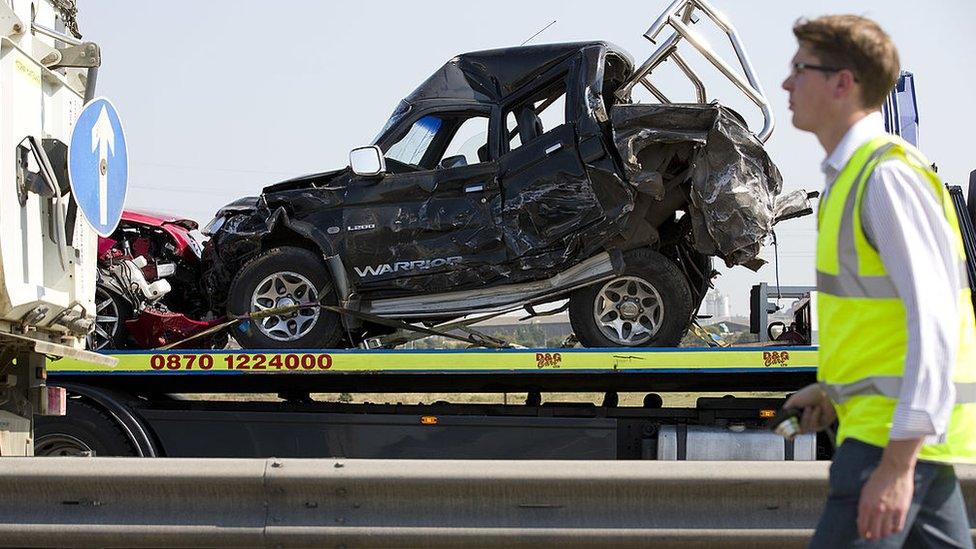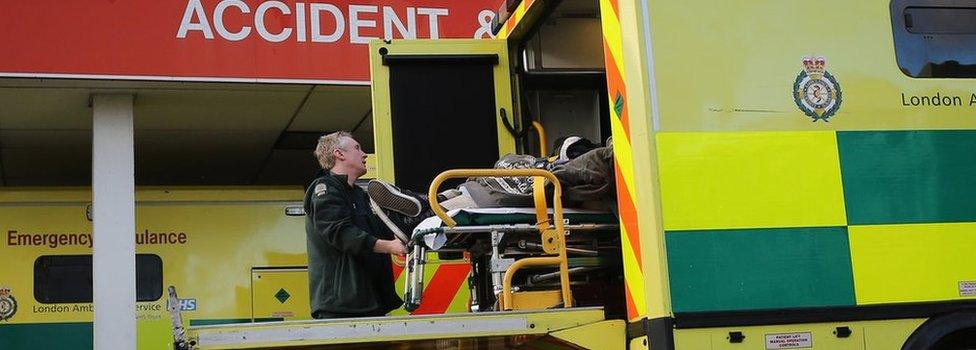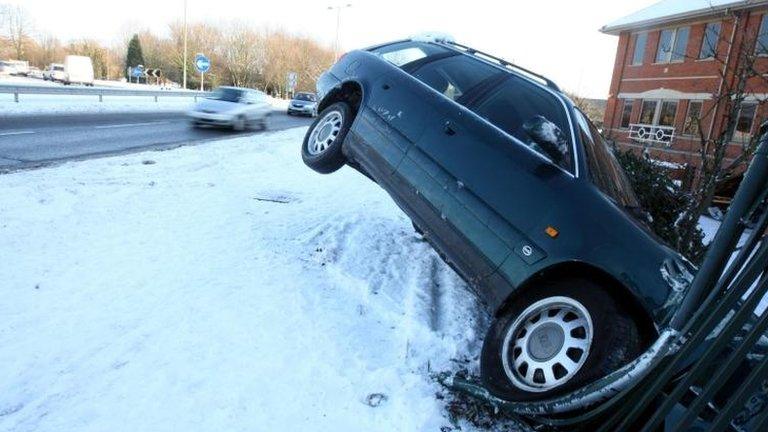Car insurance: Chancellor moves to ease insurers' fears
- Published

Chancellor Philip Hammond has said the government would "urgently" consult on future changes to compensation rates for victims of car accidents.
Insurers have warned that car insurance premiums could "soar" due to a new government formula for calculating personal injury payments.
Mr Hammond met insurance bosses on Tuesday to discuss the issue.
In a joint statement with the industry, he said the system must be "fair" to claimants as well as other drivers.
"The government will progress urgently with a consultation on the framework for setting future rates, and bring forward any necessary legislation at an early stage," Mr Hammond said.
However, he did not commit to making changes to the formula before it comes into force next month.
'Crazy' change
Mr Hammond met chief executives and other senior executives from 15 major insurance firms, including Aviva, Direct Line and Admiral.
Ahead of the meeting, the Association of British Insurers (ABI) said it would urge the chancellor to block the new formula before it kicks in on 20 March.
The ABI said the "crazy" change could increase car insurance premiums for young drivers by up to £1,000 a year.
Insurance experts have predicted the new payout rate could also add £300 to premiums for drivers over the age of 65.


The change will mean accident victims are likely to receive higher pay-outs
How compensation works
Accident victims are paid compensation in a single lump sum, which in serious cases is supposed to support them for the rest of their lives.
But someone who receives that lump sum can actually increase that amount by investing it, and getting a cash return.
So to be fair to insurance companies, the payout is reduced accordingly.
For the past 16 years the discount rate, as it is called, has been set at a typical rate of 2.5% - making the payout that much smaller.
Now the Ministry of Justice has decided, external to reduce the discount rate from 2.5% to minus 0.75%.
That will result in more money for the victim, but a higher cost for the insurer.
The change was ordered because the formula assumes the victim were to invest his or her money in government bonds.
By the time inflation is taken into account, real returns on such bonds have become negative.

The reaction of the insurance industry has been overwhelmingly negative, with some insurers saying that profits would be hit by hundreds of millions of pounds.
Aviva became the latest insurance firm to warn of a hit, external on Tuesday, saying the change would cost it £385m in profit.
However, lawyers who campaigned in favour of the change said it was "long overdue".
Accident victims who suffer long-term injuries are set to benefit as they will receive higher payouts under the new formula.
The Ministry of Justice said on Monday it would launch a consultation "before Easter" on how the system can be made fairer.
It said it would bring forward any necessary legislation "at an early stage".
- Published27 February 2017

- Published27 February 2017
